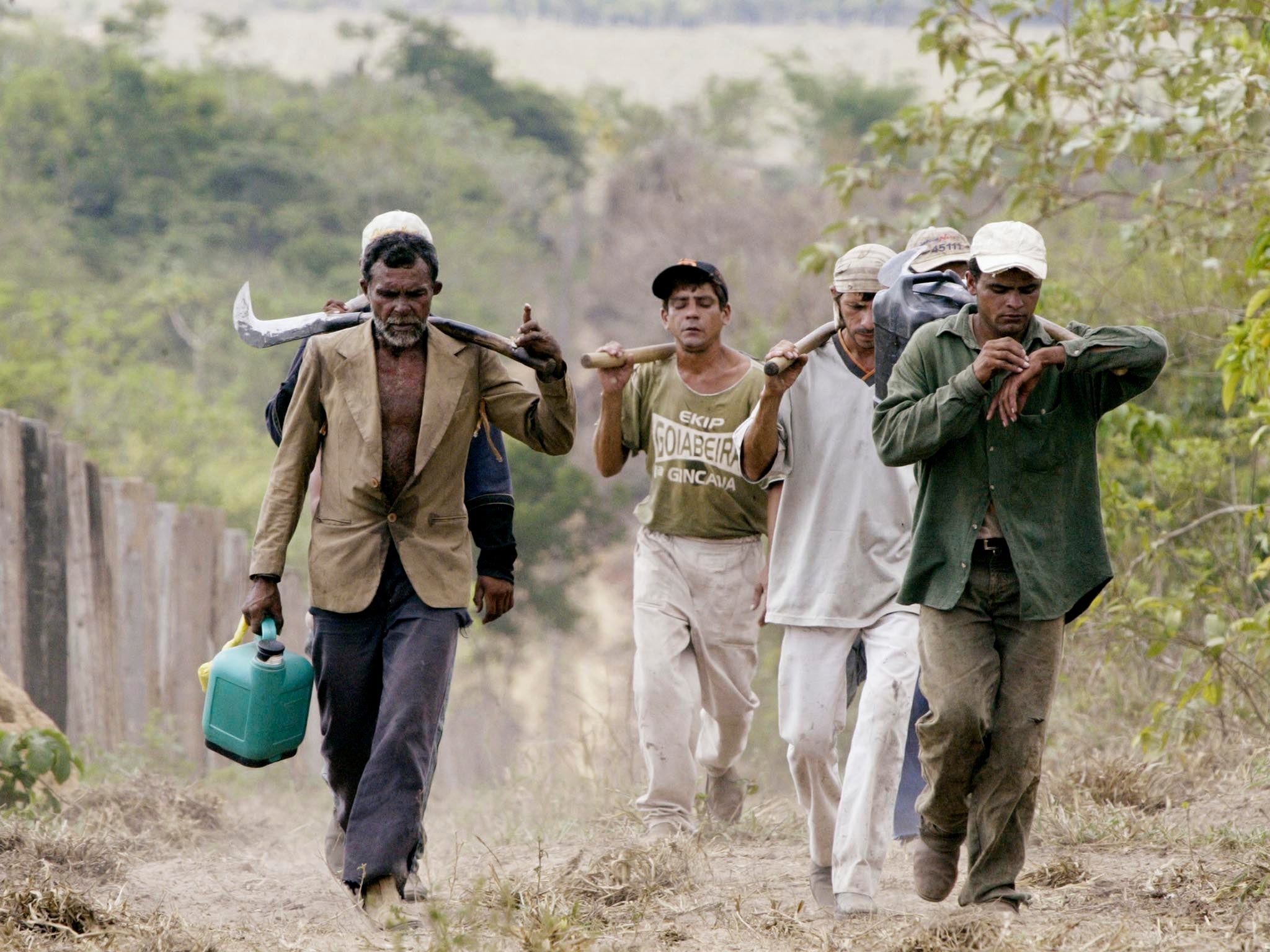Slaves on our Streets: New research finds 40 million modern slaves put to work worldwide
Shocking statistic by International Organisation for Migration exposes true scale of problem

For the first time, three major global organisations with key roles in the fight against slavery have come up with an agreed number for the scale of the scourge worldwide – and it stands at 40 million.
Few statistics exist about modern slavery, since it is illicit and often unseen. But previously the Walk Free Foundation, an NGO, and the International Labour Organisation, (ILO) issued separate estimates to quantify the global evil.
For 2016, they joined together, using data supplied by the International Organisation for Migration (IOM), to give the shocking statistic – which is the most accurate yet.
“It is the first time in history that there is a united number,” said Andrew Forrest, Walk Free chairman, ahead of the figure’s release today.
In the past, use of different stats has allowed business leaders and governments to point out gaps and dodge taking action, he added.
“There can now longer be any denial that, as Theresa May puts it, the greatest scourge affecting humanity right now is modern slavery,” said Mr Forrest.
Beate Andrees, the ILO’s Chief of the Fundamental Principles and Rights of the Work Branch, said it was not just a number but also provides a platform to “unite the sector” in a call to action at the UN General Assembly today.
At a round table this afternoon with Cherie Blair and leaders from firms Edelman, HP and Walmart, the stat will be used to prompt joint action from business and governments in “a major breakthrough that will hopefully be the tipping point in ending modern slavery”, she said.
The UK’s Modern Slavery Act of 2015 is still the only dedicated legislation of its kind in the world, with other states such as Australia now looking to follow suit with their own special laws.
Most countries now have some kind of legislation against trafficking and forced labour.
However, “all countries can do better, including the UK,” said Ms Andrees, citing the need for better support of vulnerable migrant workers who are identified as victims of slavery.
“The other area is business. We clearly hope, with the UN’s guiding principles and the ILO’s international law [principles], to move towards requiring businesses to be transparent and take action if a risk of forced labour was identified,” she said.
Mr Forrest, who became involved in anti-slavery advocacy after finding slavery was used by at least 12 suppliers to his own company, Australian iron ore giant the Fortescue Metals Group, said he will today call on companies and world leaders at the UN General Assembly to take “aggressive positive action”.
Citing last month’s Bali Process and Government Business Forum, where leaders from 45 countries in the Indo-Pacific region gathered with business chiefs and agreed to modern slavery policies, he said companies globally should “follow the example”.
The figure of 40 million, which drew on the IOM’s database of victim case studies along with surveys from over 50 countries and 71,000 face-to-face interviews, represents “the minimum number of people enslaved”, he said.
Of those, about 25 million were in forced labour, and 15 million were in forced marriage – the first comprehensive figure on forced marriage, according to the ILO.
Forced labour fits the modern slavery definition as it involves being forced and the control of a person by another for personal benefit. Its inclusion in today’s figure means female victims account for almost 29 million – or 71 per cent – of the total.
Asked why it had taken so long to produce definitive, joined-up figures on modern slavery, Ms Andrees said recent political momentum meant it was an “opportune time” to shed light on forced marriage.
She added: “It’s not that nothing has happened in the years before. I think we have seen tremendous action in recent years… but I think joining forces we can be much more impactful in the future.”
Bookmark popover
Removed from bookmarks